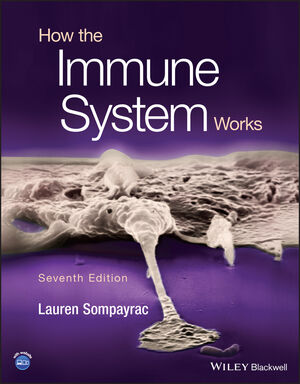hotblack
Senior Member (Voting Rights)
I’ve been reading/listening to lots about the immune system, particularly B and T cells. And thought it may be worth sharing some links to info I’ve found useful. If others have useful resources please chip in!
There’s a lot of sources here and duplication, I found reading/listening to different sources useful in reinforcing ideas.
Text
Bite Sized Immunology
B Cells
https://www.immunology.org/public-information/bitesized-immunology/cells/b-cells
Generation of B Cell Diversity
https://www.immunology.org/public-i...elopment/generation-b-cell-antibody-diversity
T Cell generation in the Thymus
https://www.immunology.org/public-i.../immune-development/t-cell-development-thymus
Cytokines: Introduction
https://www.immunology.org/public-i...gy/receptors-molecules/cytokines-introduction
Kyowakirin
Antibody types (and further antibody information)
https://www.kyowakirin.com/antibody/basics/isotypes.html
Cleveland Clinic
B Cells Types and Function
https://my.clevelandclinic.org/health/body/24669-b-cells
Helper T Cells
https://my.clevelandclinic.org/health/body/23193-helper-t-cells
Cytokines
https://my.clevelandclinic.org/health/body/24585-cytokines
IRepetoire
B Cell and T Cell Structure and Function
https://irepertoire.com/t-cell-and-b-cell-overview/
Diversity and differentiation in the adaptive immune system
https://irepertoire.com/diversity-and-differentiation-in-the-adaptive-immune-system/
Videos
Osmosis.org (their main website requires signing up, see below for YouTube links)
Introduction to the Immune System
https://www.osmosis.org/learn/Introduction_to_the_immune_system
T Cell development
https://www.osmosis.org/learn/T-cell_development
B Cell development
https://www.osmosis.org/learn/B-cell_development
(And subsequent videos look interesting too)
Osmosis Youtube channel (a subset of resources from their website, but doesn’t require signing up)
Introduction to the immune system
Somatic hypermutation and affinity maturation
Cytokines
Ninja Nerd
Immunology playlist
https://m.youtube.com/playlist?list=PLTF9h-T1TcJj4AOPCxGxOUTH0IVmaH7_8
Khan Academy
Immunologic system introduction
https://www.khanacademy.org/science...-phagocytes-in-innate-or-nonspecific-immunity
And of course Wikipedia!
There’s a lot of sources here and duplication, I found reading/listening to different sources useful in reinforcing ideas.
Text
Bite Sized Immunology
B Cells
https://www.immunology.org/public-information/bitesized-immunology/cells/b-cells
Generation of B Cell Diversity
https://www.immunology.org/public-i...elopment/generation-b-cell-antibody-diversity
T Cell generation in the Thymus
https://www.immunology.org/public-i.../immune-development/t-cell-development-thymus
Cytokines: Introduction
https://www.immunology.org/public-i...gy/receptors-molecules/cytokines-introduction
Kyowakirin
Antibody types (and further antibody information)
https://www.kyowakirin.com/antibody/basics/isotypes.html
Cleveland Clinic
B Cells Types and Function
https://my.clevelandclinic.org/health/body/24669-b-cells
Helper T Cells
https://my.clevelandclinic.org/health/body/23193-helper-t-cells
Cytokines
https://my.clevelandclinic.org/health/body/24585-cytokines
IRepetoire
B Cell and T Cell Structure and Function
https://irepertoire.com/t-cell-and-b-cell-overview/
Diversity and differentiation in the adaptive immune system
https://irepertoire.com/diversity-and-differentiation-in-the-adaptive-immune-system/
Videos
Osmosis.org (their main website requires signing up, see below for YouTube links)
Introduction to the Immune System
https://www.osmosis.org/learn/Introduction_to_the_immune_system
T Cell development
https://www.osmosis.org/learn/T-cell_development
B Cell development
https://www.osmosis.org/learn/B-cell_development
(And subsequent videos look interesting too)
Osmosis Youtube channel (a subset of resources from their website, but doesn’t require signing up)
Introduction to the immune system
Somatic hypermutation and affinity maturation
Cytokines
Ninja Nerd
Immunology playlist
https://m.youtube.com/playlist?list=PLTF9h-T1TcJj4AOPCxGxOUTH0IVmaH7_8
Khan Academy
Immunologic system introduction
https://www.khanacademy.org/science...-phagocytes-in-innate-or-nonspecific-immunity
And of course Wikipedia!
Last edited:



